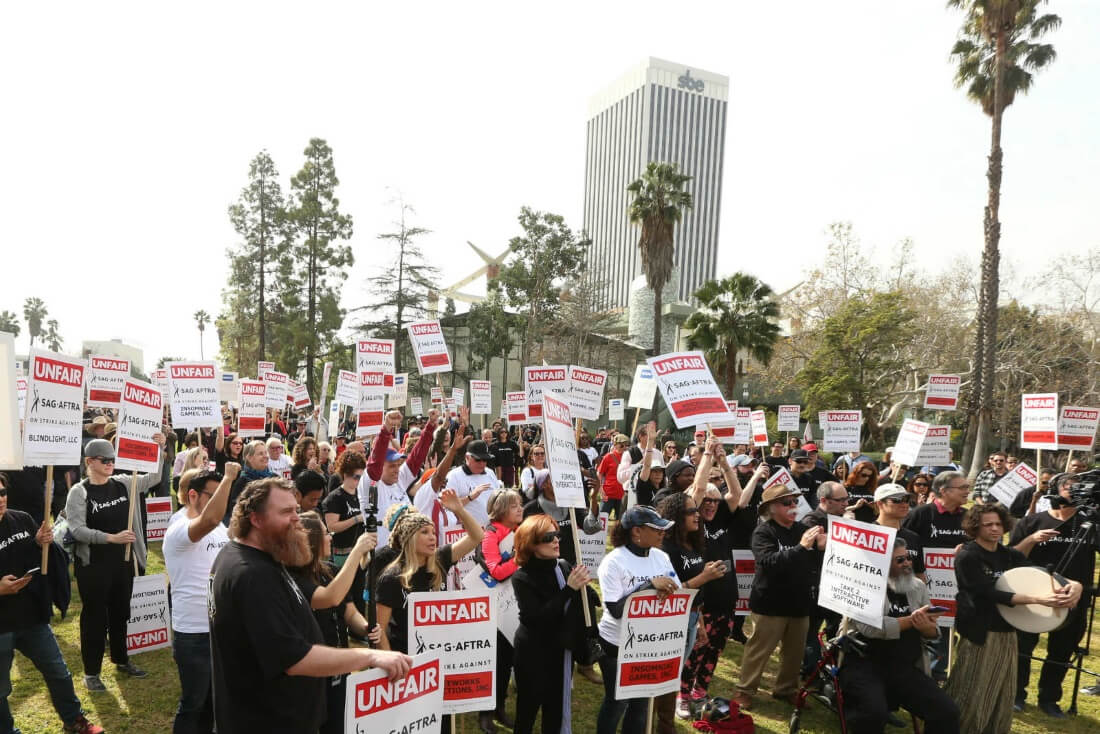Back in October, we covered SAG-AFTRA's decision to go on strike. SAG-AFTRA, short for the Screen Actors Guild-American Federation of Television and Radio Artists, is the union that represents radio personalities, journalists, recording artists, voice actors and other media professionals.
At the time, SAG-AFTRA expressed a number of concerns including the lack of transparency between voice actors and AAA game publishers (the industry is notorious for hiding game project information from voice actors), a lack of profit sharing and the ever-present risk of permanent voice damage resulting from lengthy recording sessions.
That strike, which lasted nearly a year, has finally come to an end.
Though SAG-AFTRA was not able to achieve all of the provisions they asked for, the organization did come to a "tentative agreement" with some of the industry's top video game publishers including Take-Two Interactive, Electronic Arts and Warner Brother Games.

As far as compensation goes, SAG-AFTRA was able to work out a new bonus payment structure for its members. The payment, due no later than the release date of the game, is said to be based on the number of sessions worked on each game. Payments start at $75 for the first session and can total as much as $2,100 after 10 sessions worked.
President Gabrielle Carteris shared some thoughts in an official statement:
"This is an important advance in this critical industry space. We secured a number of gains including for the first time, a secondary payment structure which was one of the members' key concerns. The courage of our members and their fortitude these many months has been admirable and I salute them. We are always stronger together."
Keythe Farley, chair of the SAG-AFTRA Interactive Negotiating Committee, said the bonus payments they have now are significantly larger than what they had 11 months ago.
Being that most voice actors make around $100 an hour (sometimes far more), this bonus should result in an overall salary that is much more reflective of the amount of time and effort voice actors put in on the projects they work on.
However, as stated above, better compensation wasn't the only demand SAG-AFTRA made during its strike. Transparency between voice actors and publishers was also a key concern.

For example, many voice actors were not informed ahead of time whether or not their roles would require them to use "unusual terminology," profanity, or racial slurs. In many cases, they weren't even told what projects they would be working on. In that regard, SAG-AFTRA has achieved another key victory.
Chief Contracts Officer Ray Rodriguez explained these new transparency provisions in the above-mentioned statement.
"The new transparency provisions will enhance the bargaining power of our members' representatives by requiring the companies to disclose the code name of project, its genre, whether the game is based on previously published intellectual property and whether the performer is reprising a prior role."
Though there will undoubtedly be further discussion between SAG-AFTRA and AAA game publishers in the future, these new provisions will likely result in happier, more motivated voice actors for the time being (and better games because of it).
